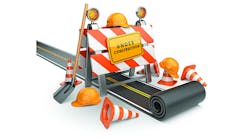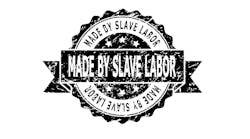For a moment, dream of a world where the President and Congress have agreed on a funding mechanism for an ambitious overhaul of our nation’s infrastructure. Then watch the dream dissolve into a nightmare of labor-related roadblocks.
This is the threat—both now and in the future—if employers can’t overcome the labor-related risks already in place, according to attorneys David Laurent, Min Suh and Kimberly Arouh of the law firm of Buchanan Ingersoll & Rooney.
Any infrastructure program would severely stretch the already shrinking pool of skilled craft. As the attorneys point out, it is legitimate to ask whether the country even has enough skilled labor available to bring a massive infrastructure bill to life, and if not, when.
According to the USG Corp. and Chamber of Commerce Commercial Construction Index, 91% of large and small contractors experienced trouble recruiting skilled workers in the first quarter of this year and 90% are concerned about worker skill levels.
Employers may be tempted to cut corners when recruiting, overlooking skill requirements and even abandoning drug testing policies, but don’t do it, the attorneys warn. While this may provide relief in the short term, lack of proper training and worker experience could lead to greater loss exposure, potential third-party liability and more worker injuries.
“It’s always best to expand a labor pool by providing more training opportunities earlier in the process or by broadening the distance labor needs to travel to work on a given job, not by reducing the requirements to qualify for a construction job,” they advise.
Regulatory Obstacle Course
Large-scale infrastructure also faces regulatory roadblocks both at the federal and state levels, even after Congress and the Trump Administration acted to lessen the impact of lengthy delays arising from environmental impact statements and the inevitable resulting lawsuits.
Construction companies may have to sign onto a Project Labor Agreement (PLA) and then comply with Community Workforce Agreements (CWA). These are provisions in PLAs that mandate the creation of employment and other career opportunities for low-income people and those from what is deemed an under-represented demographic.
“While PLAs do ensure uniform wages, benefits, overtime pay rules, hours, working conditions and other work rules for major construction projects, they can be somewhat complex and restrictive,” the attorneys note, and inflate costs by mandating prevailing wages be used and complicate projects by requiring the adherence to specific work and union jurisdiction rules.
These agreements can also be seen as cost-prohibitive for nonunion contractors, who might not bid on a project because their employees would be required to join a union, or not be able to use their own labor if the PLA mandates employees be recruited through a local union hiring hall. If a PLA is in place, consult with legal counsel to make sure you can meet the requirements of the agreement before choosing to bid on a project, the attorneys warn.
Sometimes companies choose to fill their ranks by hiring employees beyond state lines. It’s vital to understand those states’ laws regarding training, safety, sexual harassment training, paid sick and family leave, unemployment insurance and more. Knowing those differences will be key to ensuring compliance and avoiding liability and potential lawsuits.
Laurent, Suh and Arouh also point out that with federal immigration enforcement mounting at worksites, it is vitally important to undergo I-9 compliance self-audits biannually to prevent any unanticipated fines or project stoppages.
While it still remains unclear when any meaningful infrastructure legislation will be enacted, construction employers already face labor shortages. For that reason, these risks should be evaluated regardless of how soon an infrastructure bill is passed, according to the three lawyers.




